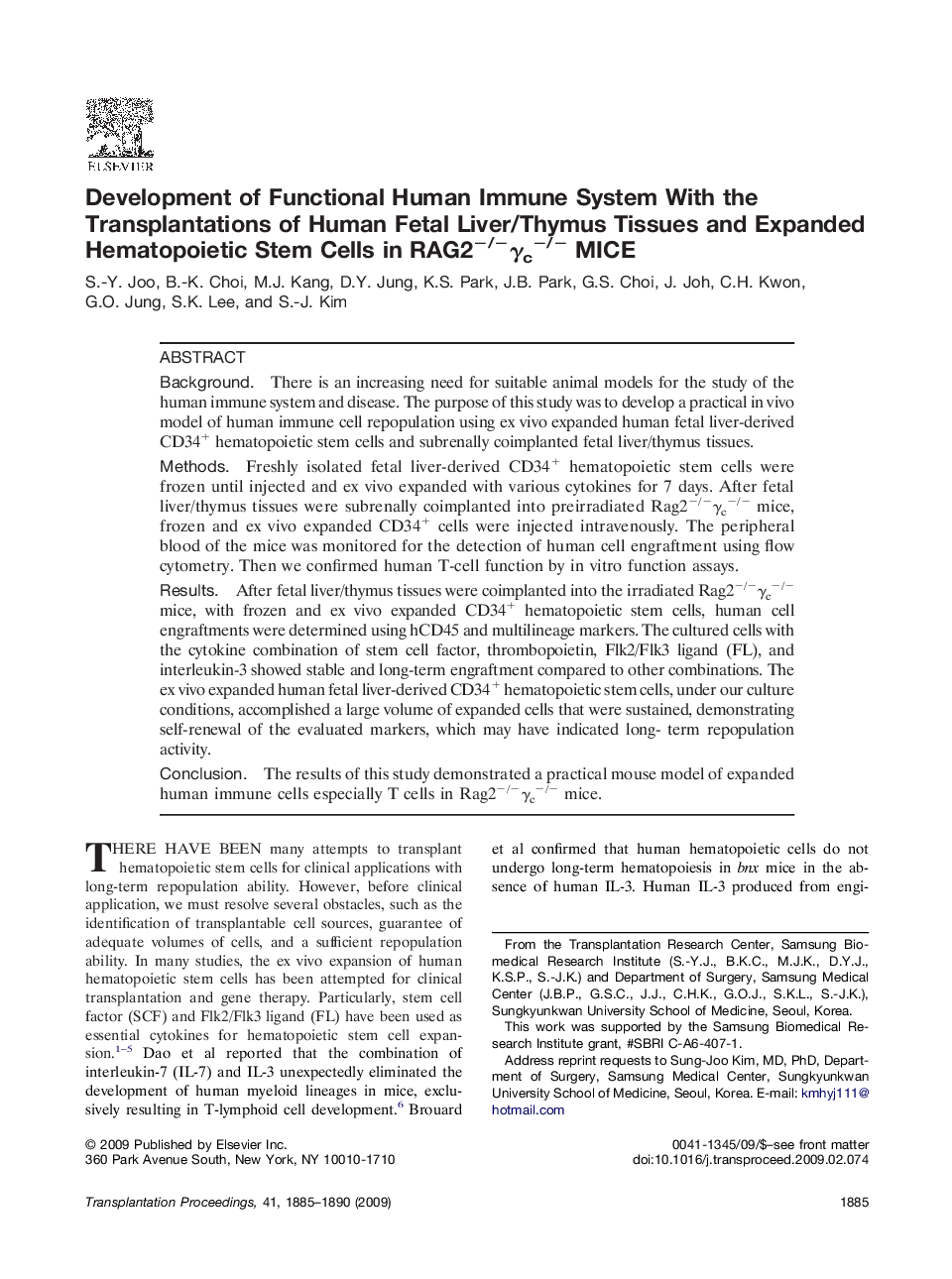| Article ID | Journal | Published Year | Pages | File Type |
|---|---|---|---|---|
| 4259308 | Transplantation Proceedings | 2009 | 6 Pages |
BackgroundThere is an increasing need for suitable animal models for the study of the human immune system and disease. The purpose of this study was to develop a practical in vivo model of human immune cell repopulation using ex vivo expanded human fetal liver-derived CD34+ hematopoietic stem cells and subrenally coimplanted fetal liver/thymus tissues.MethodsFreshly isolated fetal liver-derived CD34+ hematopoietic stem cells were frozen until injected and ex vivo expanded with various cytokines for 7 days. After fetal liver/thymus tissues were subrenally coimplanted into preirradiated Rag2−/−γc−/− mice, frozen and ex vivo expanded CD34+ cells were injected intravenously. The peripheral blood of the mice was monitored for the detection of human cell engraftment using flow cytometry. Then we confirmed human T-cell function by in vitro function assays.ResultsAfter fetal liver/thymus tissues were coimplanted into the irradiated Rag2−/−γc−/− mice, with frozen and ex vivo expanded CD34+ hematopoietic stem cells, human cell engraftments were determined using hCD45 and multilineage markers. The cultured cells with the cytokine combination of stem cell factor, thrombopoietin, Flk2/Flk3 ligand (FL), and interleukin-3 showed stable and long-term engraftment compared to other combinations. The ex vivo expanded human fetal liver-derived CD34+ hematopoietic stem cells, under our culture conditions, accomplished a large volume of expanded cells that were sustained, demonstrating self-renewal of the evaluated markers, which may have indicated long- term repopulation activity.ConclusionThe results of this study demonstrated a practical mouse model of expanded human immune cells especially T cells in Rag2−/−γc−/− mice.
